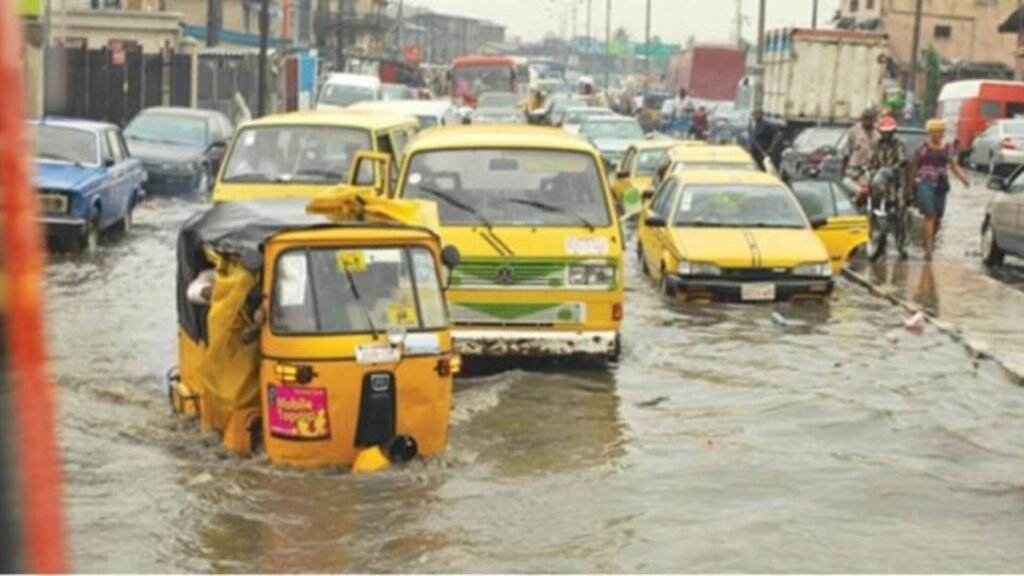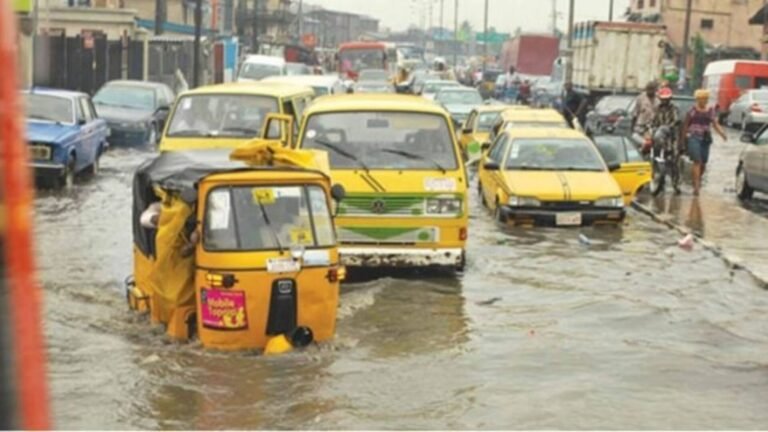Heavy flooding in Lagos paralysed vehicular and business activities across multiple communities on Wednesday after hours of relentless downpour. Residents and business owners faced severe disruptions as water levels rose quickly in flood-prone areas, including Maryland, Lekki, Ogba, and Ikorodu. Social media platforms were flooded with videos of people wading through submerged streets, while motorists struggled to navigate waterlogged roads.
On Olatunji Street in Maryland, the overflow of a local canal cut off access to the neighboring Mende community. Long-time resident Chinasa Nnadi explained that flooding during heavy rain is a recurring issue. She said, “This has been happening for years. Vehicles struggle to move, and people often swim to their houses. Some residents even relocate temporarily due to flood risk.”
Business owners were not spared either. Kalu, a shop owner in Maryland for three years, shared his frustration: “The flood spread across the street incredibly fast. Water entered my shop and homes nearby. People tried to scoop water out, but it was overwhelming.”
Even religious institutions suffered damage. Christiana, a member of a local church, described how the flood ruined musical instruments in the worship center: “When the canal overflows, water reaches half the building and causes extreme damage. Repairs will cost a lot.”
Motorists and pedestrians were trapped in massive gridlocks on flooded roads. Some vehicles broke down, adding to commuters’ frustrations. Notably, the Ogba-Wempco junction, a known flood hotspot, saw vehicles moving at a crawl due to water accumulation.
Experts say urban flooding in Lagos is worsened by inadequate drainage systems and rapid urbanization. The Lagos State Government has urged residents to exercise caution during heavy rains and avoid flood-prone areas. Authorities are reportedly assessing long-term infrastructure solutions to prevent repeated flooding incidents.
Impact on Business and Commuters
Flooding significantly disrupted trade and commerce, leaving shops and small businesses damaged or temporarily shut. Commuters spent hours waiting for buses and taxis as public transport services slowed down. Analysts recommend that Lagos residents monitor weather updates and avoid unnecessary travel during heavy rainfall to stay safe.
Conclusion
Heavy flooding in Lagos continues to pose risks for both residents and businesses, especially in Maryland, Lekki, Ogba, and Ikorodu. Improved drainage infrastructure and proactive flood management policies are essential to minimize damage. Residents are advised to stay informed and take precautions to protect life and property.












